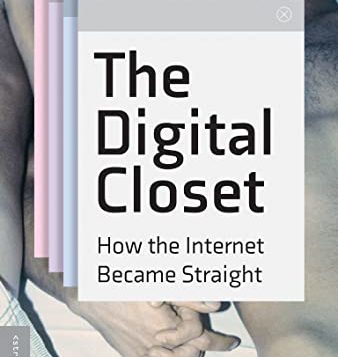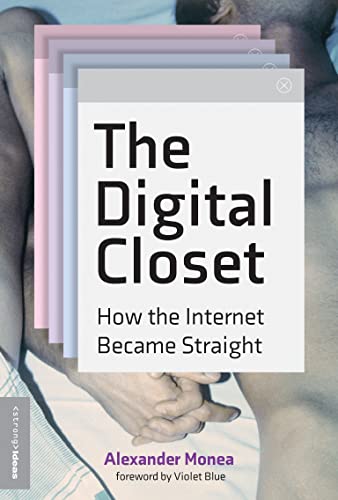DESPITE the generally held notion that the Internet is a “pornotopia” where any and all kinds of sexual activity can be found, author Alexander Monea argues in his informative and disturbing The Digital Closet: How the Internet Became Straight that the web suffers from a heteronormativity problem. The types of porn and the opportunities for online discussion about sexual matters have been limited by a bias in coding, over-blocking of content, and attacks by conservatives, which have led to restrictive legislation “routinely censoring art, literature, and lgbtq+ content across the world.” For Monea, “heteronormativity is not a glitch online but a feature of the internet writ large.”
The 2000 Children’s Internet Protection Act (CIPA) legislation pushed to protect minors from “cyberporn” and required schools and libraries to install internet filters. The passage of the overly broad regulations in the Fight Online Sex Trafficking Act and the Stop Enabling Sex Trafficking Act in 2017 has also had detrimental consequences for the LGBT community by accelerating the censorship of resources, sex education materials, art, literature, and other forms of online speech. And such legislative efforts to regulate the Internet have not stopped. In 2020 Senator Lindsey Graham introduced the earn-it Act (Eliminating Abusive and Rampant Neglect of Interactive Technologies Act) which would expand the surveillance of sexual speech online and create a commission to develop “best practices” that ISPs and social media outlets would be forced to institute.
“Nearly every major internet platform today engages in systemic overblocking of sexual expression,” by web filters and sloppy labeling of almost any sexual content as porn. Hashtags like #gay, #lesbian, and #bisexual have been banned by Tumblr for the iPhone because it associated those terms with searches for pornography. YouTube’s automated content filter in its Restricted Mode (meant to be used by schools, libraries, public institutions, and others who want a more limited viewing experience) has routinely censored LGBT content, blocking videos with the words “trans” or “transgender” in the title, for example, while the same content without those words is left up. While Facebook uses offshore “human algorithms” to analyze content that has been flagged to insure it meets the company’s community standards, these employees are given heteronormative guidelines, have only seconds to make decisions, and are expected to review thousands of pieces of content per day.
The Digital Closet also contends that the ownership of porn websites and tube sites by a few large corporations like Mind Geek (Pornhub, Xtube, and others) deflates consumers’ sexual imaginations and their capacity to experience new pleasures and form new desires. This is because they feed users a limited range of pornography based on the keywords they use, geographic location, and private algorithms, leaving most online porn boring, with the same tropes and scenes repeated over and over again.
Alexander Monea, an Assistant Professor serving jointly in George Mason’s English and Cultural Studies Departments, ends The Digital Closet with two sets of proposed solutions to the problem of the heteronormativity: one “revisionist,” such as developing better mechanisms for adjudicating what should be censored; the other “revolutionary,” like making social media platforms public utilities. In both cases he is “advocating for more varieties of pornography, rather than more total content, so that the porn that exists and is readily available to people might be more diverse, representative, and imaginative, allowing people more freedom to explore their erotic desires. On the other hand, I’m advocating for fewer people to face the negative ramifications of the mainstream heteroporn industry and online sex work.”
Monea admits that parts of this well-researched book, particularly the section dealing with coding, may be slow going for many readers. For the most part, The Digital Closet is written in such a way that a general audience can grasp the author’s message and share his concern about what results they are not seeing when using search engines, and what is being blocked and censored as they surf the web.
Reginald Harris, a writer and poet based in Brooklyn, is the author of Ten Tongues (2003) and Autogeography (2013).







